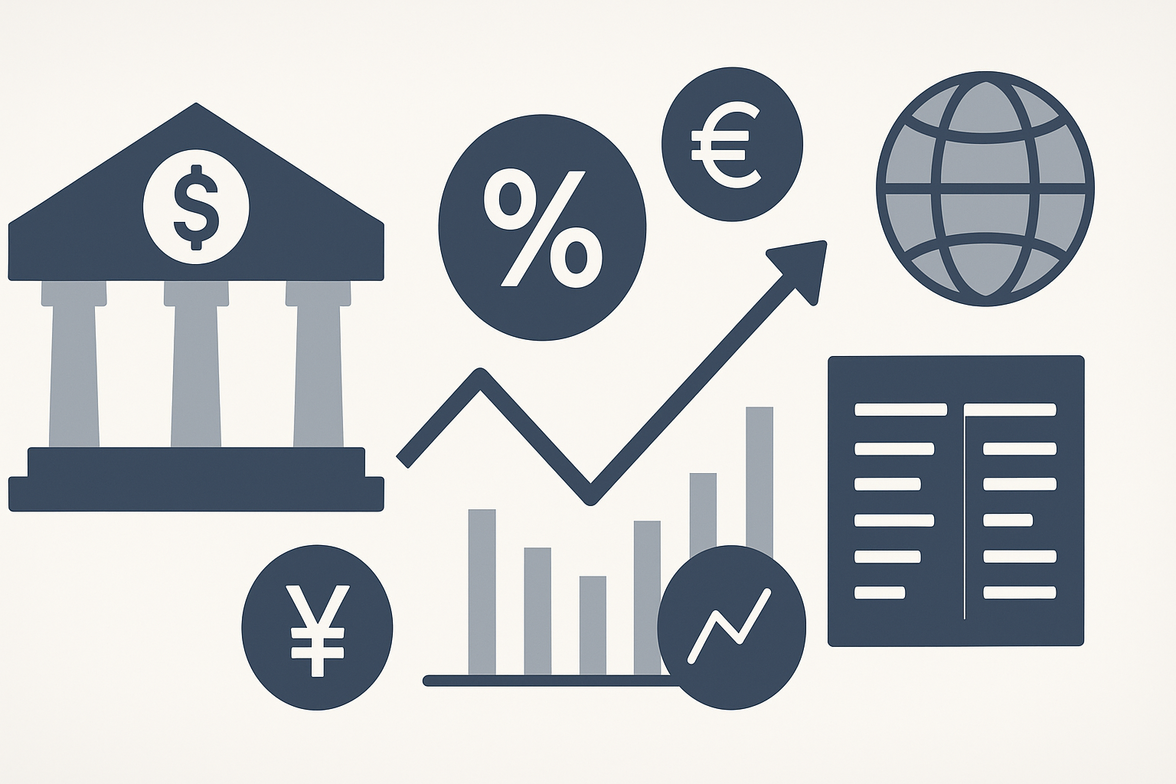
Introduction
Managing personal finances in today’s fast-paced world can feel overwhelming. Traditional methods often fall short of keeping pace with economic shifts. Many individuals struggle to track spending and plan for the future. The digital age, however, brings forth powerful new tools. Artificial Intelligence (AI) is now revolutionizing financial management. It offers unprecedented insights and automation. This transformation empowers individuals to achieve greater financial wellness. Understanding these advancements is crucial for everyone. It bridges the gap between financial goals and practical execution. This article explores how AI enhances budgeting, investing, and long-term planning. We delve into its impact on our financial lives. Prepare to discover a smarter path to fiscal health.
The Evolution of Money Management: From Spreadsheets to Algorithms
For decades, personal finance relied on manual tracking. Spreadsheets and notebooks were common tools. People diligently recorded income and expenses. This approach, while foundational, was often time-consuming. It also left little room for dynamic analysis. Financial decisions were largely reactive, not proactive. The internet brought digital banking and online statements. These innovations streamlined basic transactions. Yet, comprehensive financial oversight remained a challenge.
The advent of Artificial Intelligence changed the landscape. AI algorithms can process vast amounts of data quickly. They identify patterns and make predictions. This capability transcends simple data entry. It moves us towards predictive financial management. AI offers personalized advice based on individual habits. It also adapts to changing market conditions. This shift represents a significant leap forward. It makes sophisticated financial strategies accessible to more people.
Understanding AI-Powered Budgeting
How AI Transforms Personal Finance
AI-powered budgeting tools move beyond basic expense tracking. They analyze spending habits with remarkable precision. These tools categorize transactions automatically. They learn from your financial behavior over time. This learning process is continuous and adaptive. It offers a clear, real-time picture of your money. AI can spot trends that humans might miss. It highlights areas where you can save money effectively. This insight transforms how we view our daily spending.
Moreover, AI can forecast future cash flow. It predicts potential shortfalls or surpluses. This proactive approach helps avoid financial surprises. It allows for timely adjustments to your budget. AI also integrates with various financial accounts seamlessly. This consolidation provides a holistic view of your finances. It simplifies complex financial landscapes. This holistic perspective is key to informed decisions. It makes managing money far less daunting for many.
Key Features of AI Budgeting Tools
Modern AI budgeting applications boast several powerful features. These tools are designed for maximum user benefit. Here are some of the most impactful functionalities:
- Automated Transaction Categorization: AI instantly sorts expenses into relevant categories. This eliminates manual data entry errors. It saves significant time for users.
- Spending Habit Analysis: The AI identifies recurring spending patterns. It then offers personalized recommendations for savings. Users gain a deeper understanding of their habits.
- Real-time Financial Tracking: All accounts are linked and updated automatically. Users always have an accurate, current financial snapshot. This prevents outdated information.
- Goal-Based Planning: Users can set specific financial goals. Examples include saving for a down payment or retirement. The AI then creates a tailored plan. It helps track progress towards these objectives.
- Bill Reminders and Subscription Management: AI alerts users about upcoming bills. It also identifies forgotten or unused subscriptions. This avoids late fees and unnecessary expenses.
- Fraud Detection: Some advanced AI tools can flag unusual transactions. This helps protect users from potential fraud. It adds an extra layer of security.
- Personalized Financial Insights: AI provides tailored advice. It suggests ways to optimize spending and investing. This guidance is based on individual financial data.
AI and Investment Strategies in the Digital Age
Investing used to require extensive market knowledge or professional advice. Now, AI democratizes access to sophisticated strategies. It helps individuals make smarter investment choices. This technology offers powerful analytical capabilities. It processes market data at an incredible speed. This allows for informed decisions in volatile environments. AI brings precision to what was once a complex domain. It transforms how ordinary people engage with investments.
Robo-Advisors and Automated Investing
Robo-advisors are a prime example of AI in investing. These digital platforms provide automated, algorithm-driven financial planning services. They use AI to build and manage diversified portfolios. Users typically answer a few questions about their risk tolerance. They also share their financial goals. The robo-advisor then recommends an appropriate asset allocation. This process is efficient and cost-effective. It makes professional-grade investment management accessible. These platforms often rebalance portfolios automatically. This ensures they stay aligned with your objectives. This automation reduces the need for constant monitoring.
Benefits of robo-advisors include:
- Lower Fees: They typically charge lower management fees than traditional human advisors.
- Accessibility: Most platforms have low minimum investment requirements. This opens investing to a wider audience.
- Diversification: Portfolios are usually diversified across various asset classes. This helps mitigate risk.
- Tax-Loss Harvesting: Some robo-advisors automatically implement tax-loss harvesting strategies. This can optimize after-tax returns.
Predictive Analytics for Market Trends
AI’s ability to analyze vast datasets is invaluable for market prediction. Predictive analytics uses machine learning algorithms. It identifies patterns and correlations in market data. This includes historical prices, economic indicators, and news sentiment. AI can spot emerging trends more quickly than human analysts. It can also assess potential market movements. This technology helps investors anticipate changes. It enables them to adjust their strategies proactively. However, it is vital to remember that predictions are not guarantees. Market volatility always carries inherent risks. Investors should use AI as a tool for informed decision-making. They should not rely on it as a crystal ball.
Navigating the Crypto Landscape with AI
The world of cryptocurrencies is notoriously volatile and complex. Understanding digital assets like Bitcoin or Ethereum requires specialized knowledge. AI is increasingly playing a crucial role here. It helps investors make sense of this dynamic market. AI tools provide insights into market sentiment and price movements. They assist in managing the inherent risks. This technology is becoming indispensable for crypto enthusiasts. It offers a clearer path through the complexities of digital finance.
AI for Risk Assessment in Digital Assets
Assessing risk in the crypto market is a significant challenge. Prices can fluctuate dramatically in short periods. AI algorithms can analyze various data points. These include blockchain data, social media sentiment, and trading volumes. This analysis helps identify potential risks and opportunities. AI can flag unusual trading activity. It can also detect potential rug pulls or scams. This enhances security for investors. It helps in understanding the true volatility of various digital assets. By providing objective data, AI helps investors make more calculated decisions. This reduces emotional trading. It promotes a more rational investment approach.
Automated Trading and Portfolio Management
AI-powered platforms also facilitate automated crypto trading. These platforms execute trades based on predefined strategies. They react to market changes faster than any human. This can capitalize on fleeting opportunities. AI can also manage a diversified crypto portfolio. It can rebalance assets according to market conditions. This ensures the portfolio aligns with the investor’s risk profile. Such automation can reduce the emotional toll of active trading. It helps maintain long-term investment discipline. However, users must understand the algorithms’ limitations. They must also be aware of the inherent risks of automated trading. Vigilance remains paramount.
Insurance and Retirement Planning with AI Insights
Planning for the future involves many complex variables. Insurance needs and retirement savings are critical components. AI is transforming these areas. It makes planning more precise and personalized. This technology helps individuals secure their financial future. It ensures they are prepared for life’s uncertainties. AI offers tailored solutions for long-term security. It enhances traditional planning methods significantly.
Personalized Insurance Solutions
AI enables insurance companies to offer highly personalized policies. It analyzes vast amounts of customer data. This includes lifestyle, health records (with consent), and driving habits. This data helps assess individual risk more accurately. Insurers can then tailor premiums and coverage options. This personalization benefits both the insurer and the policyholder. Customers receive fairer prices. They also get coverage that truly meets their needs. For example, telematics devices use AI to monitor driving behavior. Safe drivers may receive lower car insurance premiums. This creates a fairer and more efficient insurance market. It moves beyond one-size-fits-all policies.
AI-Enhanced Retirement Projections
Retirement planning requires careful consideration of many factors. These include life expectancy, inflation, and investment returns. AI tools can create highly sophisticated retirement projections. They simulate various economic scenarios. This helps individuals understand the potential outcomes of their savings strategies. AI can also suggest optimal contribution amounts. It can recommend adjustments to investment portfolios. This ensures a more robust retirement plan. It helps individuals visualize their financial future clearly. This proactive planning is invaluable for long-term financial security. It provides peace of mind for future generations. AI makes complex projections more accessible.
Embracing Financial Wellness: Beyond Just Numbers
Financial wellness extends beyond mere account balances. It encompasses mental and emotional peace regarding money. It means having control over daily finances. It also includes the capacity to absorb financial shocks. AI tools can significantly contribute to this holistic well-being. They provide more than just data. They offer guidance and support. This helps individuals cultivate a healthier relationship with money. AI promotes a proactive and informed financial lifestyle.
Behavioral Finance and AI Coaching
AI is increasingly incorporating principles of behavioral finance. This field studies the psychological aspects of financial decision-making. AI tools can identify common biases in user behavior. These biases might include impulsive spending or procrastination. The AI can then offer nudges or suggestions. These prompts encourage better financial habits. For example, an AI might remind you of a savings goal before a large purchase. This personalized coaching helps overcome behavioral hurdles. It fosters discipline and promotes long-term financial health. It moves beyond simple budgeting advice. It helps users understand their financial psychology.
Building Resilience in a Volatile World
The digital age is characterized by rapid change and economic uncertainty. Building financial resilience is paramount. AI-powered tools assist in this by providing adaptability. They can quickly re-evaluate financial plans in response to market shifts. They also help identify areas for building an emergency fund. This crucial safety net protects against unexpected expenses. AI can guide users in diversifying their investments. This diversification spreads risk across various asset classes. Such proactive measures strengthen financial stability. They equip individuals to navigate economic downturns. This fosters a sense of security and control. AI helps prepare for the unknown, making finances more robust.
Conclusion
The integration of AI into modern money management marks a significant paradigm shift. It transforms how individuals approach their financial lives. From automating budgets to personalizing investment strategies, AI offers powerful tools. It provides unprecedented insights into our financial behaviors. This technology empowers us to make more informed decisions. It helps us plan for a secure and prosperous future. The digital age demands adaptive and intelligent financial solutions. AI delivers these solutions effectively. It moves us towards a future of enhanced financial wellness. Embracing these innovations is not merely a choice but a strategic advantage. It secures a more stable financial tomorrow. The journey to financial mastery is now more accessible than ever. Let AI be your guide. It is an invaluable partner in your financial journey.



